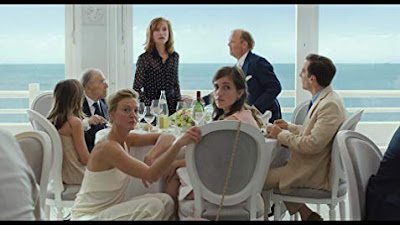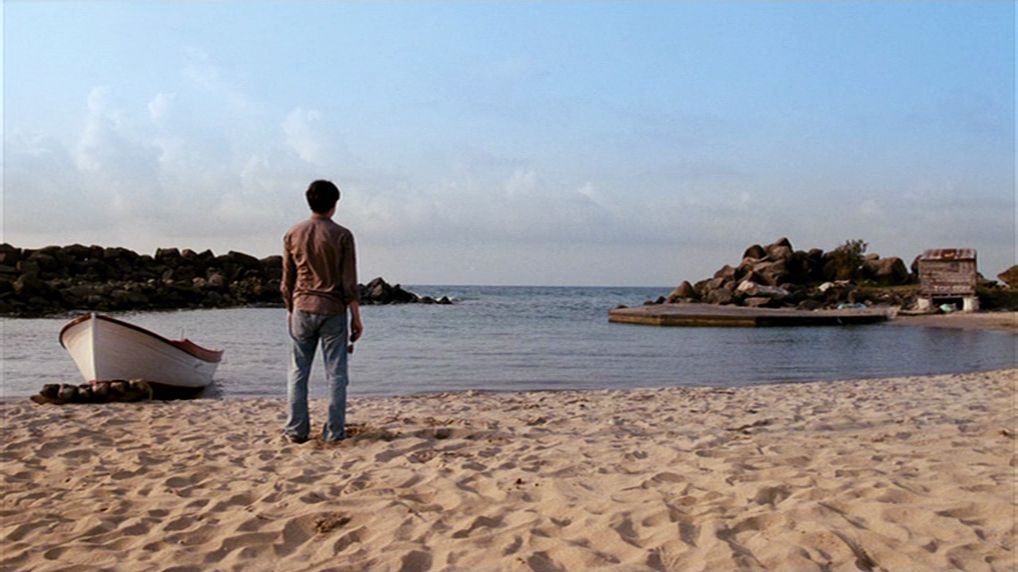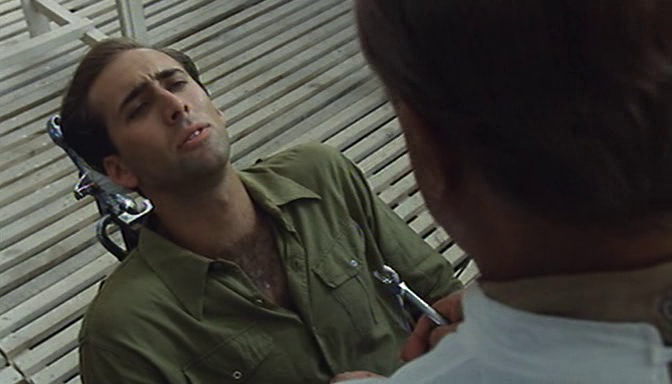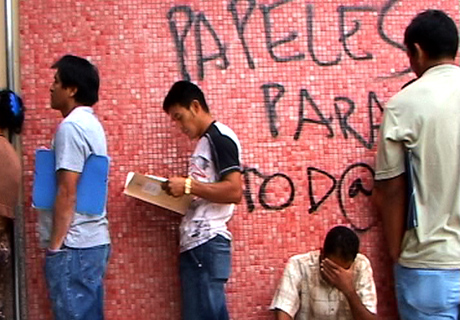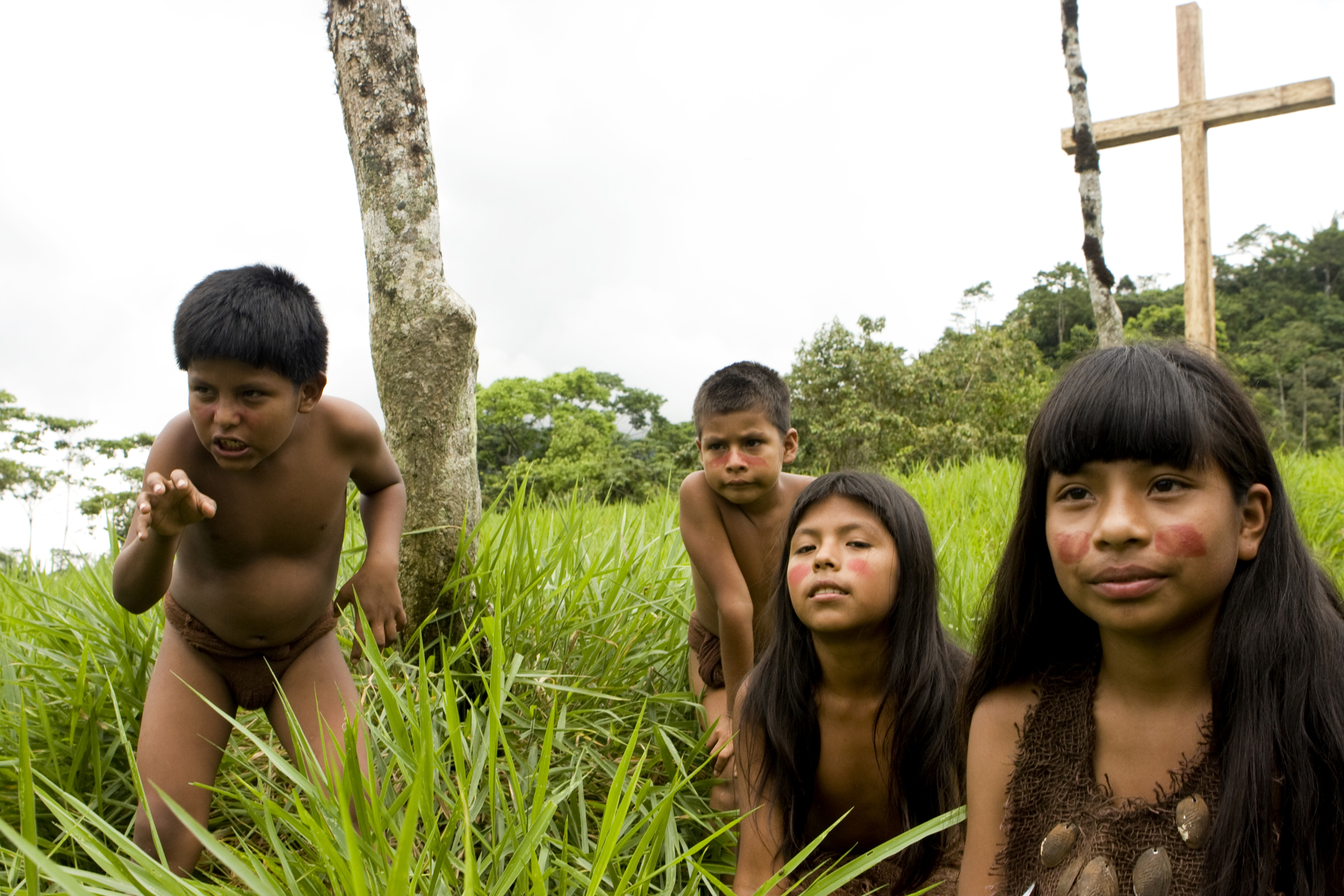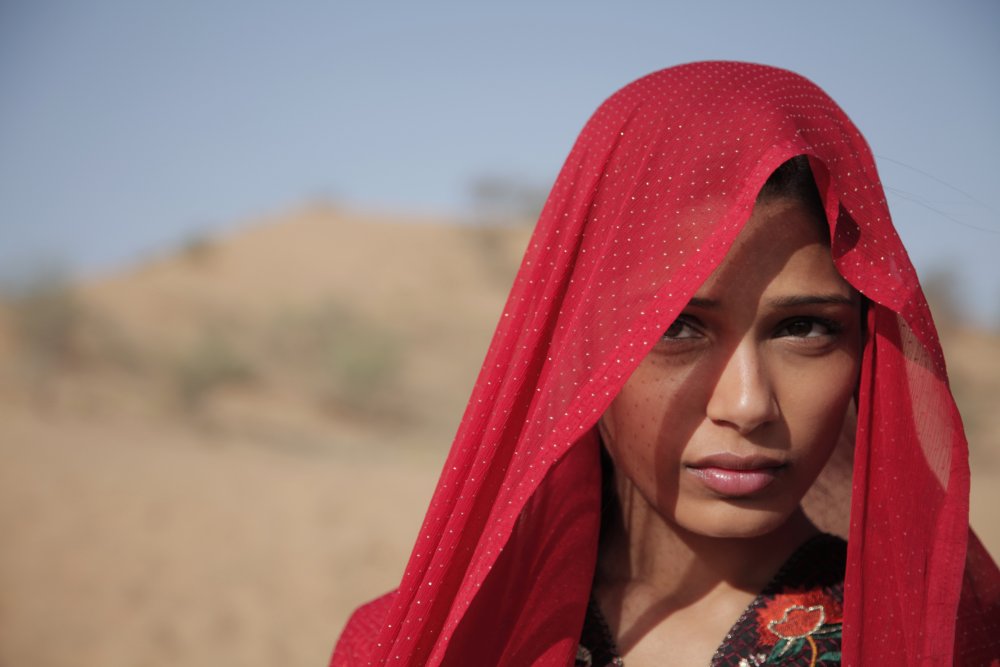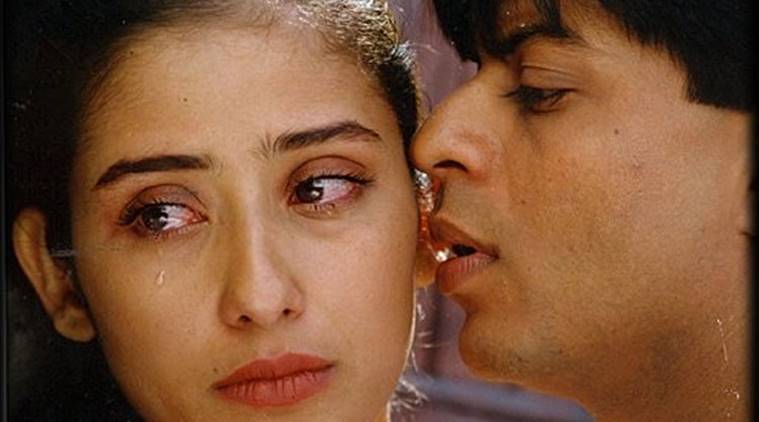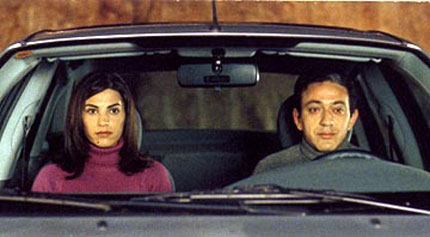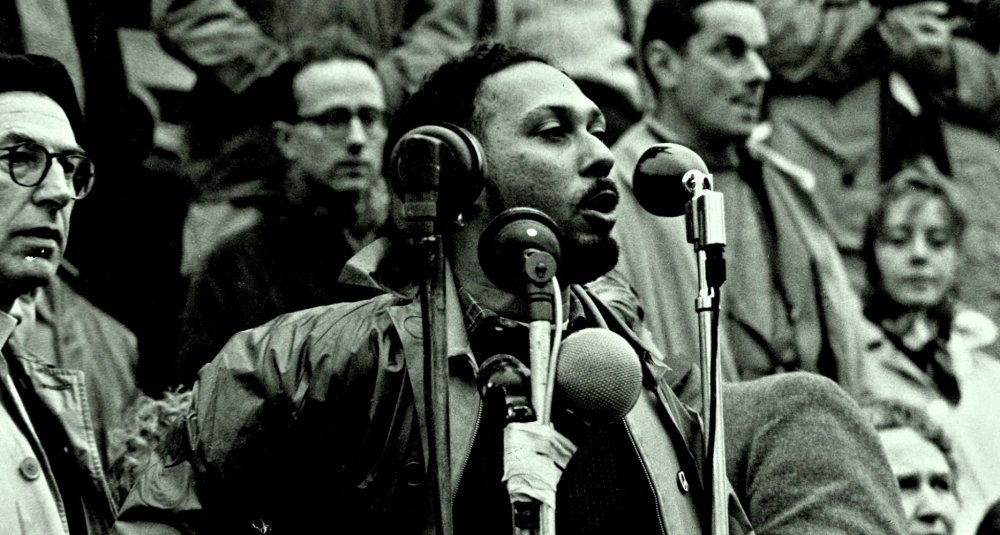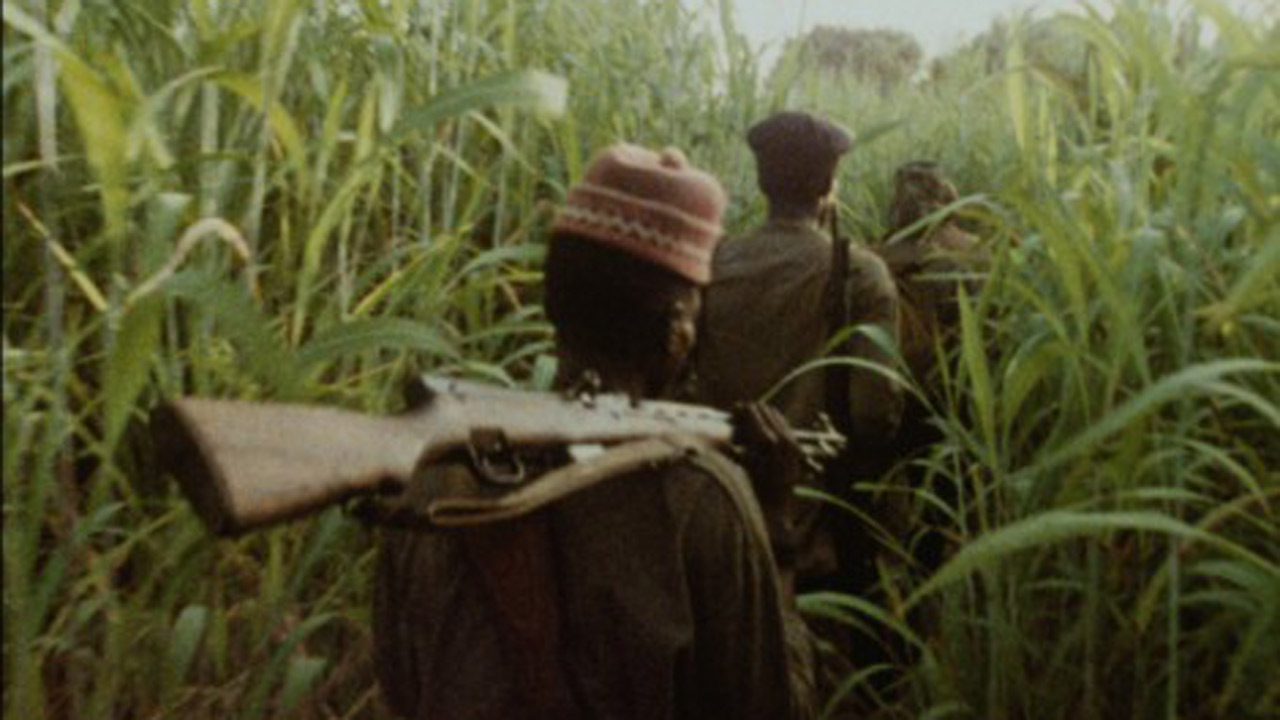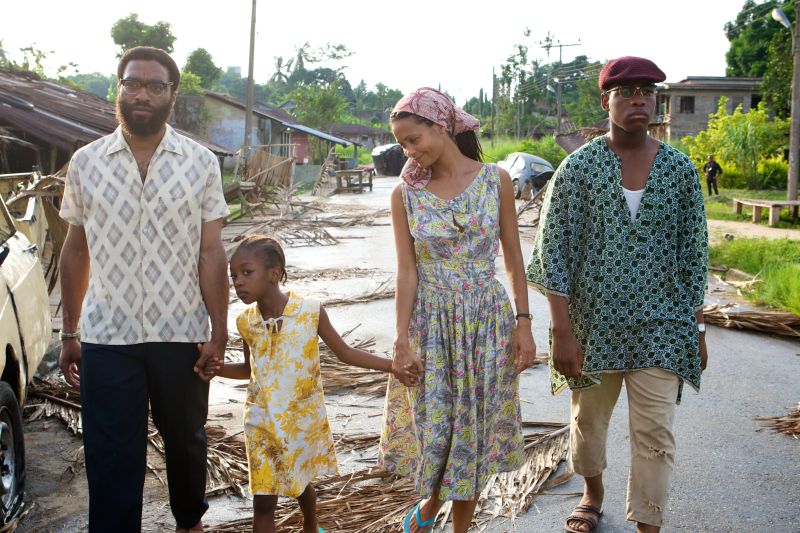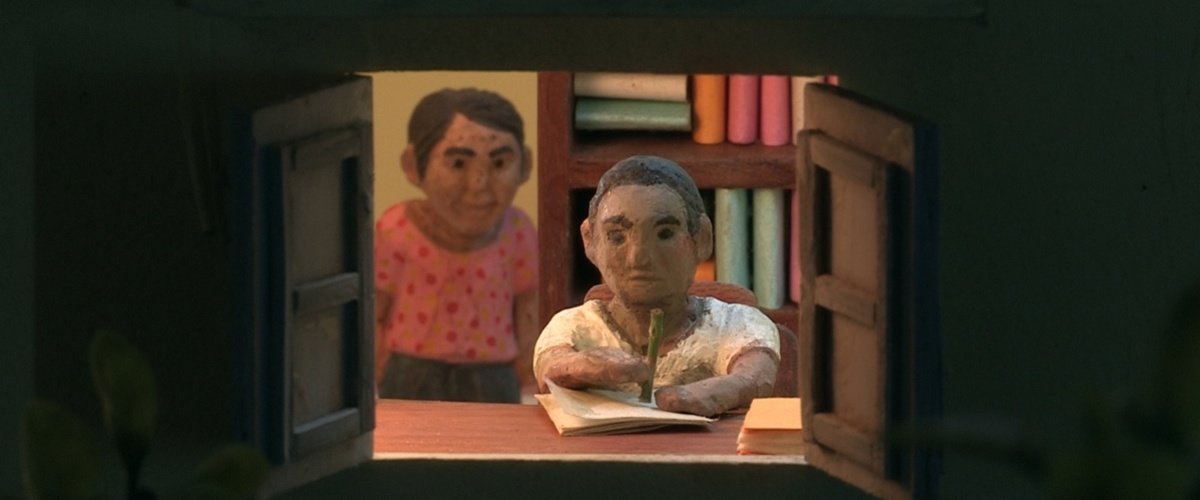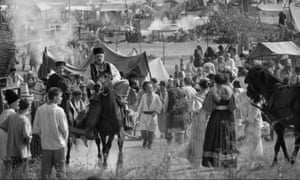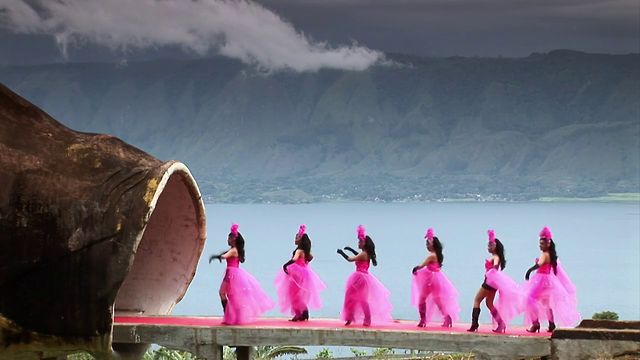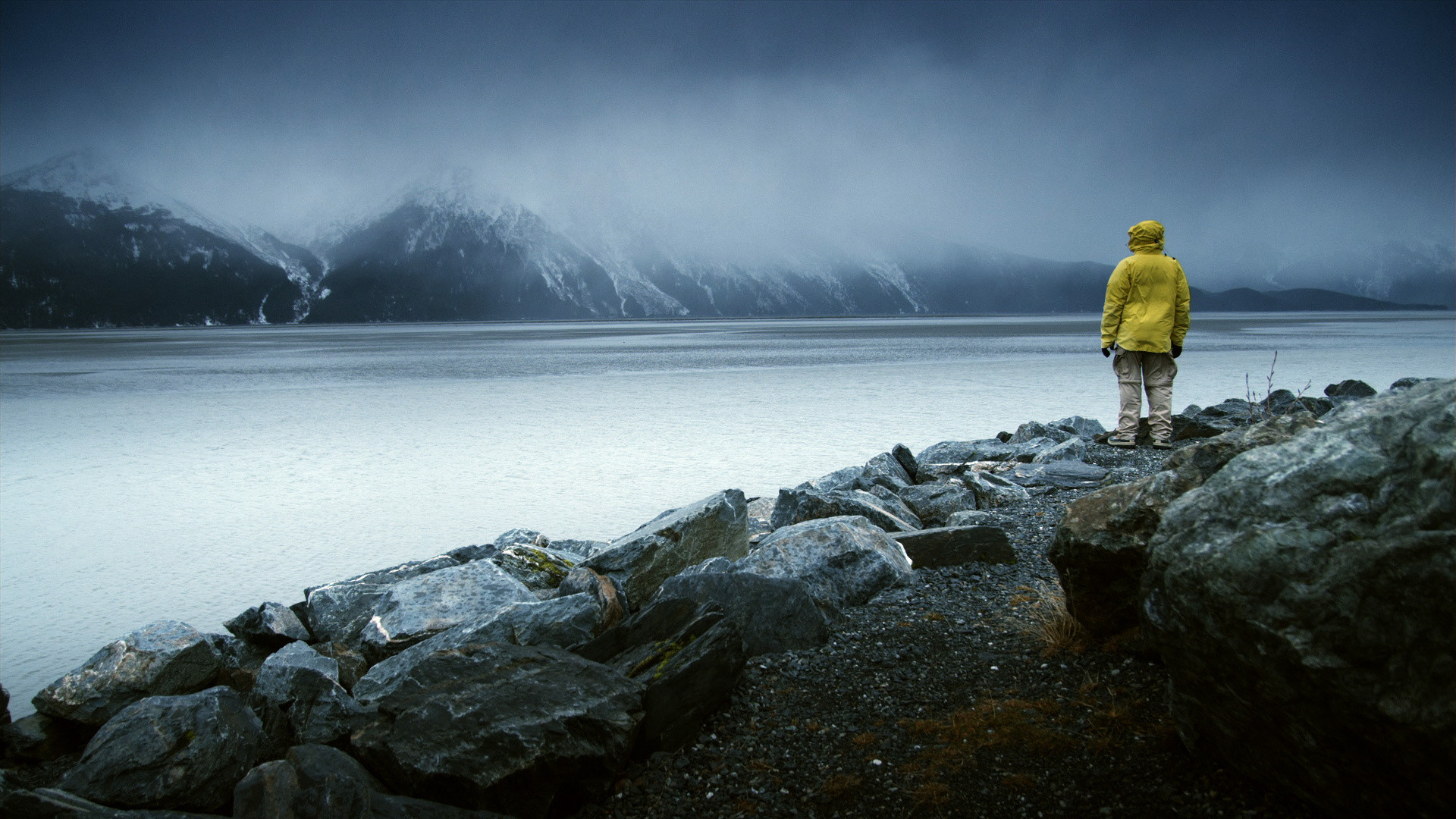9th PCI Film Series
|
|
|
Paris is Burning (dir. Jenny Livingston 1990)
Introduced by Zerrin Cengiz (Utrecht University) and Milica Trakilović (Utrecht University)

The legendary documentary Paris is Burning (Jenny Livingston, 1990) about the New York Underground drag queen and transgender culture.
A new restoration of Paris Is Burning has been released. The timing couldn’t be more apt: this year marks the 50th anniversary of the Stonewall uprising, which arrives at a fraught time in queer visibility. It’s no wonder that in addition to being cherished and debated over the years, Paris Is Burning has often been taught in colleges and beyond, an urtext for debates about the meanings of gender, race, class, and sexuality.
Over the past decade, Jennie Livingston’s landmark 1990 documentary “Paris Is Burning” has had a renaissance of sorts, thanks in no small part to the popularity of “RuPaul’s Drag Race.” If you’ve never seen “Paris Is Burning,” you’re only getting half of what “Drag Race” has to offer, so a new restoration and theatrical re-release of the film courtesy of Janus Films is the perfect opportunity to catch up.
A new restoration of Paris Is Burning has been released. The timing couldn’t be more apt: this year marks the 50th anniversary of the Stonewall uprising, which arrives at a fraught time in queer visibility. It’s no wonder that in addition to being cherished and debated over the years, Paris Is Burning has often been taught in colleges and beyond, an urtext for debates about the meanings of gender, race, class, and sexuality.
Over the past decade, Jennie Livingston’s landmark 1990 documentary “Paris Is Burning” has had a renaissance of sorts, thanks in no small part to the popularity of “RuPaul’s Drag Race.” If you’ve never seen “Paris Is Burning,” you’re only getting half of what “Drag Race” has to offer, so a new restoration and theatrical re-release of the film courtesy of Janus Films is the perfect opportunity to catch up.
Practical information
Date: 13 January, 2019
Time: 17:00-19:00
Location: Entrance at Muntstraat 2A, MCW-LAB (Grote zaal KNG20)
Date: 13 January, 2019
Time: 17:00-19:00
Location: Entrance at Muntstraat 2A, MCW-LAB (Grote zaal KNG20)
Admission is free of charge. However, due to safety regulations, maximum capacity of the room is 80 people. Because the screening is part of the postcolonial studies minor, seating for non-UU students is limited.
_________________________________________________________________________
Palimpsest of the Africa Museum (2019) & Lobi Kuna (2018)
Introduction and Q&A with filmmaker Matthias De Groof

During this special PCI screening event filmmaker Matthias De Groof will show fragments of his films 'Palimpsest of the Africa Museum’, a documentary on the renovation of the Tervuren museum in Belgium, and its crippled decolonization. He will also show Lobi Kuna, a participative fiction on cultural heritage. The film performs a cinematic restitution.
In 2013, the Royal Museum for Central Africa closes for renovation. Not only the building and the museum cabinets are in need of renewal: the spirit of the museum has to be brought into this century. The documentary which resulted from the renovations, entitled Palimsest of the Africamuseum, will be shown and introduced by the filmmaker, who will also show fragments of a Lobi Kuna, a fiction film he made with Congolese friends on restitution. Both films are part of a cinematic triptych showing crippling decolonisations. While showing these processes, the triptych itself attempts to undo the historic entanglements between the medium of cinema and coloniality.
Bio
Matthias De Groof is a postdoctoral researcher affiliated with the University of Antwerp. He has held visiting fellow appointments at the New York University, the Helsinki Collegium for Advanced Studies in Finland, and the Africa Multiple Cluster of Excellence of the Bayreuth University in Germany.
Palimpsest of the Africa Museum (dir. Matthias De Groof in collaboration with Mona Mpembele, 2019, 1,09 min.)
In 2013, the Royal Museum for Central Africa, located just outside Brussels, closes for renovation. Not only the building and the museum cabinets are in need of renewal: the spirit of the museum has to be brought into this century. In COMRAF, a board of advisers, the process of decolonization leads to fierce discussions. In order to completely dislodge the majestic building from its colonial form, fundamental questions also need to be asked. Who is looking at whom here? And whose story is being told here? For the trailer, see here.
Lobi Kuna (avant-hier / après-demain), (dir. Matthias De Groof, 2018, 45 min.)

“Lobi Kuna” is the fruit of a strong friendship between a Belgian and a Congolese. The film is based on a visit Mekhar (Congolese artist) and dr. Matthias De Groof paid to the museum of Central-Africa in Belgium. “Lobi Kuna” became the fruit of common concerns and reflections on interrelated issues such as the diasporic journey, stolen heritage, racism, museums and the postcolonial condition. It tells the story of Mekhar’s gaze being unsettled as he views through his lens the macabre museum as a mausoleum of his cultural heritage. Lobi Kuna tells the story of his appropriation of the past in order to project himself into a future. Being co-written by a Congolese, partially shot in Congo by a Congolese crew, co-produced by Congolese, the film is participatory / collaborative.
Practical information
Date: 9 March, 2020
Time: 17:00-20:00
Location: Entrance at Muntstraat 2A, MCW-LAB (Grote zaal KNG20)
More information: http://www.postcolonialstudies.nl/
Admission is free of charge. However, due to safety regulations, maximum capacity of the room is 80 people. Because the screening is part of the postcolonial studies minor, seating for non-UU students is limited.
8th PCI FILM SERIES announcements for November and December 2018
26 November: Human Flow (2017, Ai Weiwei, Germany, USA, China, Palestine, 140 min.) Introduction by Prof. dr. Sandra Ponzanesi (Gender Studies, Utrecht University)
Time: 17.00 - 19.30
Location: Entrance at Muntstraat 2A, MCW-LAB (Grote zaal KNG20)
About the film: Over 65 million people around the world have been forced from their homes to escape famine, climate change and war in the greatest human displacement since World War II. Human Flow, an epic film journey led by the internationally renowned artist Ai Weiwei, gives a powerful visual expression to this massive human migration. The documentary elucidates both the staggering scale of the refugee crisis and its profoundly personal human impact.
Time: 17.00 - 19.30
Location: Entrance at Muntstraat 2A, MCW-LAB (Grote zaal KNG20)
About the film: Over 65 million people around the world have been forced from their homes to escape famine, climate change and war in the greatest human displacement since World War II. Human Flow, an epic film journey led by the internationally renowned artist Ai Weiwei, gives a powerful visual expression to this massive human migration. The documentary elucidates both the staggering scale of the refugee crisis and its profoundly personal human impact.
10 December: In the Same Boat (2016, Rudi Gnutti, Spain, 70 min). Introduction by dr. Domitilla Olivieri (Gender Studies, UU).
Location: Entrance at Muntstraat 2A, MCW-LAB (Grote zaal KNG20)
A fascinating and stylish investigation into globalisation and the future of our economy. The Same Boat is an artistic and sophisticated analysis of the effects of globalisation on the world, which presents an optimistic argument for the future of the planet. Guided by some of the world's leading radical figures, from Zygmunt Bauman to Jose Mujica, In The Same Boat travels the world discovering the views of its people on work, happiness, the environment, and the economy. Supported by Rudy Gnutti's stunning cinematography and compositions, this film will transform your understanding of the modern world.
PCI Film Series presents '1/2 Revolution' (dir. Karim el Hakim, Omar Shargawi, 2016)
14 January: 1/2 Revolution (2016, Karim el Hakim, Omar Shargawi, 72 min). Introduction by Sara Verderi (Gender Studies, UU).
Time: 17.15- 20.00
Location: Entrance at Muntstraat 2A, MCW-LAB (Grote zaal KNG20)
January 2011 — downtown Cairo — a close-knit group of friends struggle to stay alive and stick together as waves of protests escalate around them in their neighborhood near Tahrir Square during the first chaotic days of the Egyptian Revolution. Armed with cameras and focused determination, directors Omar Shargawi and Karim El Hakim take to the streets to capture a view of the revolution unlike any other. Shot from street level and featuring stunning on-the-ground footage of history in the making, 1/2 Revolution is one of a kind real-life action thriller.
PCI Film Series presents 'I Am Not Your Negro' (dir. Raoul Peck, 2016)
12 February : I Am Not Your Negro (2016, Raoul Peck, France, United States, Switzerland, Belgium, 93 min). Introduction by Alessandra Benedicty-Kokken (CUNY, USA)
Time: 17.15- 20.00
Location: Entrance at Muntstraat 2A, MCW-LAB (Grote zaal KNG20)
Directed by Haitian-born Raoul Peck's I Am Not Your Negro, is a radical documentary about race in America today based on James Baldwin's unfinished book Remember This House. Peck has created one of the most progressive filmographies in cinema history. He received privileged access to the Baldwin archives because the family knew of his outstanding works on the Conga leader, Patrice Lumumba, specifically the 1990 political thriller Lumumba: Death of a Prophet and the 2000 award winning drama on the same subject, Lumumba. They trusted in his ability to accurately represent Baldwin's life and writings, and so he took 10 years to bring this masterpiece to the screen, after being rejected by every American studio he approached. And public agencies said "this is public money so you have to present both sides!" Thus, his ability to produce this film through his own successful company and a supportive French TV station ARTE, allowed him to make a film exactly like he wanted, with no censorship, and no one telling him to rush the film or mellow the message. Peck "didn't want to use the traditional civil rights archives." He chose to avoid the talking heads format and picked Samuel L. Jackson to embody the spirit of Baldwin in the potent narration. The film's powerful structure utilizing rare videos and photos and personal writings of Baldwin, and at the same time aligning them with contemporary issues of police brutality and race relations, creates a mesmerizing awareness of the continuity in the struggle for civil rights.
PCI Film Series presents 'Happy End' (dir. Michael Haneke, 2017)
11 March: Happy End (2017, Michael Haneke, France, Germany, Austria, 147 min). Introduction by Milica Trakilović (Utrecht University, Gender Studies)).
Time: 17.15- 20.00
Location: Entrance at Muntstraat 2A, MCW-LAB (Grote zaal KNG20)
A drama about a family set in Calais with the European refugee crisis as the backdrop.
Happy End dissects an unhappy, self-deceiving family. And yet Jean-Louis Trintignant, as a patriarch this time slipping into dementia himself, has a beautifully intimate conversation with his 12-year-old granddaughter Eve (Fantine Harduin). Even if, this still being Haneke, she’s probably a murderer, and their heart to heart is about poison and suicide. “He’s a more humanistic director than he seems,” Huppert has noted. “There is of course no sentimentality, but there is a belief in mankind.”
“It’s a North-South conflict,” Haneke’s says. “The rich countries against the poor. That’s been confirmed categorically, since Code Unknown. Refugees aren’t a simple problem, and there are no simple solutions, but a solution has to be found. The problem is that, for a lot of people at the moment, the solution is a shift to the right. I’m especially sceptical of comparisons with the 1930s. But this current atmosphere, with everyone dancing on the edge of the volcano, has a parallel there. Because in my youth, immediately after the war, everybody thought that things would get better – because everything could only get better, after that. But now everybody thinks that things can only get worse, and that is a parallel to the situation before World War Two.” (The Guardian)
28 June 2018
Alejandro González Iñárritu
virtual
reality installation
Carne Y Arena
Carne y Arena – Alejandro González Iñárritu © Legendary
The Postcolonial Studies Initiative Film Series
Experience the refugee crisis yourself
Joost Raessens
Sunset. You are walking barefoot across the desert sand. All alone in
the Mexican-US border area. Until a group of refugees emerges from the dark,
led by two ‘coyotes’ or ‘jackals’, i.e. human smugglers. Suddenly everyone is
blinded by the searchlight of a helicopter. Despair reigns supreme. Armed law
enforcement officers with a menacing barking dog detain the group. At first you
are a silent witness, but later you yourself become a refugee. “Hey, you there,
what are you doing? Put your hands up, get down on your knees!” They only
change their tone when they figure out the group doesn’t contain any armed
smugglers. Women and children are helped, the smugglers arrested.
In Washington DC and
Amsterdam, everyone can experience the human side of the refugee crisis for
themselves. The Oscar-winning virtual reality installation Carne y Arena
(2017) by the Mexican director Alejandro González Iñárritu is on show in
these cities. It is a compelling experience based on true stories of refugees
from Mexico and Central America, trenchantly illustrated by an image of a
beating heart on the border between U.S. and T.H.E.M. But Iñárritu also refers
to the European refugee drama that is currently unfolding mainly in the
Mediterranean.
“These aren’t people, these
are animals.” So said President Trump about the families who try to escape the
chaos, corruption, violence and poverty by crossing the southern border into
the US. Meanwhile, Italy’s extreme-right Lega party proudly reports that the
country has denied access to a crowded rescue ship. But resistance is also
growing. From the refugee organization UNHCR, which has accused both countries
of violating human rights. From democratic California, which is calling for
bridges to be built instead of walls. And from the mayors of southern Italy,
who are actually advocating taking refugees in: “We are people with a big
heart”.
Carne y Arena – Alejandro González Iñárritu © Legendary
I personally saw Carne y Arena three times in Washington DC in a
vacant church covered on the outside with steel plates that had once been part
of the border at Naco, Arizona. Inside, you enter a cold waiting room, similar
to the ones refugees are locked up in. The room is littered with shoes and
water bottles found in the desert. On the wall, you read that 6000 people have
died there over the past seven years. You have to take off your shoes and
socks. When the alarm goes off, you walk on through. As the staff help you to
put on the VR gear, you feel the sand. Carne y Arena literally means ‘flesh
and sand’; it refers to the feeling you get when walking through the desert
that the sand slowly takes over your entire body.
Iñárritu
shows that VR is everything film isn’t, and vice versa. For six and a half
minutes, you are liberated from the restrictions of the film frame: here,
you determine what you look at and from what vantage point. Should you hide
from the violence behind a bush, go and stand next to the border police because
you feel threatened, or try to protect one of the children? Then all of a
sudden Iñárritu lyrically conjures up a magical-realist dream world. We see a
table with a boat full of refugees that capsizes. You realize that it makes no
difference whether you die in the Arizona desert or the Mediterranean. Then the
sun rises. You are alone again. The image turns black. In the last room, we
watch seven monitors with close-ups of the faces of the refugees we have just
seen and with texts telling their moving stories. What we just experienced was their
life stories, played by the refugees themselves.
Iñárritu combines the
perspectives of the participant and the visitor in an ingenious manner. A
constant first-person perspective — putting yourself in a refugee’s shoes —
would be too stressful and make you reject the situation. Purely taking the
visitor’s perspective, however, would be too voyeuristic and aloof. Most of the
time you are a bystander, unnoticed by the refugees or the border police. But
you are also a participant whenever you cast a shadow on a refugee’s body, and
because of the desert wind and overwhelming noise of the helicopter. This all
makes the life of a refugee visible and tangible rather than just a statistic.
The subtitle ‘Virtually
Present, Physically Invisible’ refers not just to what VR is but also to the
position of refugees. Carne y Arena lets you walk by their side for a
moment, it lets you inside their hearts. Literally: when you take the place of
a refugee, or a police officer or even the dog, you see a large beating heart.
Regardless of your views and which solution you ultimately advocate. Despite
everything, Carne y Arena is a humanistic masterpiece driven by
optimism.
Joost Raessens is chair of Media
Theory and director of the Utrecht Center for Game Research, both at Utrecht
University, the Netherlands. He is spending this
academic year (2017-2018) at the NYU Game Center. His research focuses on VR
and Games for Change. Email: j.raessens@uu.nl; www.raessens.nl; www.gameresearch.nl.
You can visit Carne y Arena in Washington DC and Amsterdam, the Netherlands.
For more information about
Carne y Arena:
· Iñárritu acccepts a special Oscar for Carne y Arena:
· Interview Iñárritu by LACMA director Michael Govan:
Also see ‘How Games and VR Frame Refugee Issues’
__________________________________________________
Read more about:
The Postcolonial Studies Initiative Film Series
Word of welcome
The Postcolonial Studies Initiative (PCI)
at Utrecht University is intended as a platform for research into postcolonial
issues, specifically focused on their application within Europe. The PCI
organises activities such as lectures, film series, masterclasses and seminars,
striving for greater interaction with society at large. As such it brings
together a number of researchers from diverse areas and disciplines, both from
Utrecht University and from other universities in the Netherlands as well as
from other international partner universities.
Director: Professor Sandra Ponzanesi
Every year the Postcolonial Studies Initiative
continues its film series with a selection of films, shown monthly, that draw
on a variety of different contexts in our postcolonial world. The annual PCI
Film Series has been running for 7 years, inviting all interested in our
European postcolonial present and the representation of its political, cultural
and aesthetic realities and challenges. Each film is introduced briefly by scholars
connected to the PCI and international guests and filmmakers.
Through the film series the PCI hopes to explore,
through visual representations and cinematographic narratives, how postcolonial
realities are analyzed and re-imagined in contemporary film. Here you can find out all the information on
past, present and film series’, while also finding a collection of comprehensive
film reviews, conducted by the PCIs Research Assistant Melanie Moran, MA (Gender Studies, UU). In these reviews we approach the
notion of postcolonial films not as a genre or a strict category, but as a way
of looking and interpreting films through a postcolonial optic that enhances a
critical intervention into the issues of power and resistance applied to medium
specificity and the visual coding of cinema. The focus of postcolonial cinema
is therefore on the analysis of contemporary or past asymmetries as dictated by
multiple and overlapping histories of conquest and colonialism. Postcolonial
cinema is therefore to be understood not as a new genre, or a new rubric, but
as an optic through which questions of postcolonial historiography,
epistemology, subjectivity, and geography can be addressed. Postcolonial cinema
refers to a conceptual space that opens occluded frames and proposes a new
engagement with the visual that is decolonized and de-orientalized, becoming a
relational mode of representation, opening the space for often repressed,
omitted or deleted, unofficial histories of nations, communities, gender, and
subaltern groups (Ponzanesi and Waller, 2012).
Read the
Reviews
Film Series
2011
January 27: Hidden (2005,
Michael Haneke, France, 117 min.). Introduction by Emmanuelle Radar.
February 25:
The Edge of Heaven (2007, Fatih Akin, Germany/ Turkey,
116 min.). Introduction by Birgit Kaiser (UU).
March 10: A time to Kill (1989,
Giuliano Montaldo, Italy, 110 min.). Introduction by Sandra Ponzanesi (UU).
April 8: The Murmuring Coast (A
Costa dos Murmúrios, 2004, Margarida Cardoso, Spain, 115 min.)
Introduction by Paulo de Medeiros.
June 6: Slumdog Millionnaire, (2008,
Danny Boyle, UK / India, 120 min.). Introduction by Barnita Bagchi.
2012
January 17: Vénus noire
/Black Venus (2010, Abdellatif Kechiche, France and Belgium, 152
mins.). Introduced by Rosemarie Buikema (UU).
February 21: Un trabajo limpio (2007,
Mieke Bal & Gary Ward, 22 mins); Colony (2006, Mieke Bal, Gary Ward, Zen Marie and Thomas Sykora,
33 mins); and Becoming Vera (2008,
Mieke Bal, Alexandra Loumpet Galitzine & Michelle Williams Gamaker, 54
mins). Introduction
by Mieke Bal.
March 20: Lagaan. Once
Upon a Time in India (2001, Ashutosh
Gowariker, India, 224 mins). Introduction by Barnita Bagchi.
April 10: The Seawall -
Un barrage contre le Pacifique (2008, Rithy Panh, France, Cambodia,
Belgium, 115 mins). Introduced by Emanuelle Radar.
May
15: Angola: Saudades de Quem te Ama/ Angola: Saudades from the One Who
Loves You (2005, Richard Pakleppa, South Africa, Namibia, 60 mins). Introduction by Paulo de
Medeiros.
June 7: Forget Baghdad: Jews and Arab, the Iraqi Connection (2002, Samir, Germany, Switzerland, 112 mins). Introduction by Ella Shohat
(New York University).
2013
January 8: Earth
(1998, Deepa Mehta, India/Canada, 110 min). Introduced by Amrita
Das (VU).
February 12: The
Best Exotic Marigold Hotel (2001, John Madden, UK,
2011, 124 min). Introduced by Barnita Bagchi (UU).
March 19: Even the Rain (También la lluvia)
(2010, Icíar Bollaín, Spain, 103 min). Introduced by Susanne Knittel (UU).
April 9: Incendies (2010,
Denis Villeneuve, Canada, 130 min). Introduced by Emmanuelle Radar.
May 7: Tabu (2012, Miguel
Gomes, Portugal, 118 min). Introduction by Paulo de Medeiros (UU).
June 4: Trishna (2011,
Michael Winterbottom, UK, 117 min). Introduced by Sandra Ponzanesi (UU).
2013- 2014
December 3: Dil Se (From
the Heart) India, 1998, Mani Ratnam,163 min). Introduced by Sandra Ponzanesi.
January 7: Divine Intervention (UK,
2011, Elia Suleiman, 124 min). Introduced by Babs Boter.
February 11: Coffy
(USA, 1973, Jack Hill, 91 min). Introduced by Doro Wiese.
March 4: Waltz with Bashir (Israel, 2008, Ari Folman, 87 min).
Introduced by Susanne Knittel.
March 25: Hors-La-Loi (Outside the Law) (France, 2010, Rachid Bouchareb,
138 min). Introduced by Emmanuelle Radar.
May 6: Monsoon Wedding (India, 2001, Mira
Nair, 114 min). Introduced by Marta Zarzycka.
2014- 2015
September 16: The Stuart Hall Project (2013,
John Akomfrah, UK, 95 min.) Introduced by Domitilla Olivieri (UU).
October 14: District 9 (2009, Neill Blomkamp, USA/South Africa, 112 min.)
Introduced by Kári Driscoll (UU).
November 18: The Secret Sharer (2014, Peter Fudakowski,
UK/Poland/China/Thailand, 103 min.) With the special participation of Peter
Fudakowski. Introduced by Gene Moore (UvA).
December 9: Mosquita y Mari (2012,
Aurora Guerrero, USA, 85 min.) Introduced by Christine Quinan (UU).
January 13: Terraferma (2011,
Emanuele Crialese, Italy). Introduced by Birgit Kaiser (UU).
February 17:
Concerning
Violence (2014, Göran Olsson, Sweden/USA/Denmark/Finland, 85
min.). Introduced by Doro Wiese (UU).
March 3: Half of
a Yellow Sun (2014,
Biyi Bandele, Nigeria/UK). Introduced by Sandra Ponzanesi (UU).
March 10: Queen (2014,
Vikas Bahl, India, 146 min.). Introduced by Barnita Bagchi.
2015-2016
September 15: Those
who feel the fire burning (2014, Morgan Knibbe, Netherlands, 75
min.). Introduced by Christine Quinan, with the special presence of the
director Morgan Knibbe for Q&As.
October 20: Fitzcarraldo
(1982, Werner Herzog, West
Germany, 157 min.) Introduced by
Kari Driscoll.
November 17: Besouro
(2009, João Daniel Tikhomiroff, Brazil, 94 min.) Introduced by Edward Akintola Hubbard.
December 15: Mediterraneo
(Jonas Carpignano, Italy, 2015). Introduced by Domitilla Olivieri.
January 12: The
Missing Picture (Rithy Panh, Cambodia, 2014). Introduced by Sandra
Ponzanesi.
February 16: Aferim!
(Radu Jude, Romania, 2015). Introduced by Laura Candidatu.
March 15: Drone (Tonje Hessen Schei, Norway, 2014.
Introduced by Doro Wiese.
April 19: The Act
of Killing (Joshua Oppenheimer, Indonesia, 2013). Introduced by Susanne
Knittel.
2016- 2017
20 September: The
Lost Ones. Long Journey Home (2011, USA, 42 min). Introduced by Prof. Susan
Rose (Dickinson College, USA).
11 October: Brincando
El Charco. Portrait of a Puerto Rican (1994, Frances Negrón- Muntaner, USA,
55 min)
and Small City, Big Change (2013, Frances Negrón-Muntaner, USA, 10
min). Introduced by Frances Negrón-Muntaner (Columbia University, USA).
15 November: Lift
(2001, Marc Isaacs, UK, 25 min) and Calais, the Last Border (2003,
Marc Isaacs, UK, 60 min). Introduced by Dr Domitilla Olivieri (Gender Studies,
UU).
13 December: The
Nine Muses (2011, John Akomfrah, Ghana, 90 min). Introduced by Jamila
Mascat (Gender Studies, UU).
17 January: Letter
to a Refusing Pilot (2013, Akram Zaatari, Lebanon, 34 min).
Introduction by Layal Ftouni (Gender Studies, UU).
28 February: Fuocoammare (Fire
at Sea, 2016, Francesco Rosi, Italy/France, 114 min). Introduced by
Prof. dr. Sandra Ponzanesi (Gender Studies, UU).
14 March: The
Pearl Button (2015, Patricio Guzmán, Chile, 82 min).
Introduction by dr. Doro Wiese (Comparative Literature, UU).
11 April:
Everyday Borders (2014, University of East London, England, 50
min). Leila Whitley (Marie Curie Postdoctoral Fellow, Zukunftskolleg,
University of Konstanz, Germany).
2018- 2019
2018- 2019
26 November: Human Flow (2017, Ai Weiwei, Germany, USA, China, Palestine, 140 min) Introduced by Prof. dr. Sandra Ponzanesi (Gender Studies, UU).
10 December: In the Same Boat (2016, Rudi Gnutti, Spain, 70 min). Introduced by Dr. Domitilla Olivieri (Gender Studies, UU).
14 January: 1/2 Revolution (2011, Omar Shargawi, Karim el Hakim, Egypt, Denmark, 72 min). Introduced by Sara Verderi (Gender Studies, UU).
__________________________________________________________
The Postcolonial Film Series (2011- present)
2011
January
27: Hidden (2005, Michael Haneke, France, 117 min.).
Introduction by Emmanuelle Radar.
Michael Haneke’s Hidden (Caché,
France/Austria/Germany/Italy/USA, 2005, 117 min.) is a stunning thriller played
by two renowned French actors, Daniel Auteuil and Juliette Binoche. This
postcolonial film involves remembering and reflecting on the colonial past and
its consequences today. It is set in Paris in the 21st century where Georges
(Daniel Auteuil), a TV journalist settled in a comfortable life, receives
mysterious packages that terrorise his family and reveal the haunting of a
hidden past. France, Algeria, brotherhood and guilt are intertwined in Georges’
search for the origin of the messages. What is Georges’ responsibility for the
past and for the present? What is ours as viewers?
__________________________________________________________
February
25: The Edge of Heaven (2007,
Fatih Akin, Germany/ Turkey, 116 min.). Introduction by Birgit Kaiser
(UU).
Auf der anderen Seite (Fatih Akin,
Germany/Turkey, 2007, 116 min) is the second part of acclaimed film-maker Fatih
Akin’s “Love, Death and Devil” trilogy, after his award-winning Gegen die Wand
(2004). It is a story of love across and despite boundaries. The film weaves a
delicate web of entanglements in the Turkish-German present: the young,
successful and sad Turkish-German professor Nejat’s love for his aging father
Ali, Ali’s love for Yeter, the prostitute he invites to live with him and
accidentally kills, Lotte’s love for Ayten, human rights activist and Yeter’s
daughter, Susanne’s love for her daughter Lotte, whom she follows from Hamburg
to Istanbul in search of Ayten. Ayten’s political activism got her deported
from Germany and into prison in Turkey, and Susanne and Nejat end up navigating
Istanbul side by side. Auf der anderen Seite is about migration, intercultural
communication, and the entangled histories of Germany and Turkey, but it is
also about love and death in times of our postcolonial present.
__________________________________________________________
March
10: A time to Kill (1989, Giuliano Montaldo, Italy, 110 min.).
Introduction by Sandra Ponzanesi (UU).
A Time to Kill (Giuliano Montaldo, Italy, 1989,
110 min) is based on the Italian award- winning novel of the same title Tempo
di Uccidere written by Ennio Flaiano (1947). The novel is set in the
1930’s at the time of the Italian fascist occupation of Abyssinia and the war
against Ethiopia. The film starring great actors such as Nicolas Cage, Ricky
Tognazzi, Patrice-Flora Praxo and Giancarlo Giannini among others is
faithful to the novel and effectively depicts the torments of colonial guilt
and the rise of postcolonial consciousness of an Italian soldier who
unwillingly commits a crime which will lead him towards an odyssey of atonement
and postcolonial awareness.
__________________________________________________________
April
8: The Murmuring Coast (A Costa dos Murmúrios, 2004, Margarida
Cardoso, Spain, 115 min.) Introduction by Paulo de Medeiros.
The Murmuring Coast (Margarida Cardoso,2004) is an
intensely dramatic film about the end of the Portuguese empire, the pervasive
violence of the colonial regime and the colonial war that engulfed Mozambique
for more than a decade. Based on the critically acclaimed novel by Lídia Jorge
(A Costa dos Murmúrios), the film questions traditional views of history and
memory while showing the strict correlations between collective and personal
tragedy. Narrated from the perspective of Evita, the wife of one of the
soldiers, years after his death, the film traces back her struggle to resist
corrupting her ideals and the dissolution of their marriage. The film calls for
reflection on today’s Europe and the need to address the hauntings of history
to imagine a different polity.
__________________________________________________________
June
6: Slumdog Millionnaire (2008, Danny Boyle, UK / India, 120 min.).
Introduction by Barnita Bagchi.
Slumdog
Millionaire tells the
story of Jamal Malik, an 18-year-old orphan from the slums of Mumbai,
who is just one question away from winning 20 million rupees on India’s
version of the TV show “Who Wants to Be A Millionaire?” When the
show breaks for the night, police arrest him on suspicion of cheating; how
could a street boy know so much? Jamal then tells the story of his
life in the Mumbai slum where he and his brother grew up, of their
adventures together on the road, of vicious encounters with local gangs, and
of Latika, the girl he loved and lost. Each chapter of his story reveals
the key to the answer to one of the game show’s questions. With music by
India's A.R. Rehman, with a British director, and with the pulsing,
ambition-driven, postcolonial city of Mumbai as almost a
protagonist, the Oscar-winning 'Slumdog Millionaire’ is a very
hybrid, post-globalization, postcolonial film.
__________________________________________________________
***
January 17: Vénus noire /Black Venus (2010,
Abdellatif Kechiche, France and Belgium, 152 mins.). Introduced by Rosemarie
Buikema (UU). ***
The story of Saartjes Baartman, a Black domestic
who, in 1808, left Southern Africa, then ruled by Dutch settlers, for Europe,
following her boss Hendrick Caesar, hoping to find fame and fortune there. Once
in London her master turned manager does nothing but exhibit her as a freak in
a phony and humiliating carnival show. After a series of troubles caused by
their act, Caesar, Saartje and their new friend, bear-tamer Réaux, head for
Paris where once again, and against her will, she should mimic savagery and
expose her body, first in carnivals, then in the aristocratic salons of Paris,
later among the libertines and finally in brothels where she ends up being a
prostitute. In the meantime, French anatomists will have taken an interest in
her unusual anatomy (enormous buttocks and labia) only to declare her the
missing link from ape to man. In 1815, aged only 27, she dies alone, of a combination
of pneumonia and venereal disease.
February
21: Un trabajo limpio (2007, Mieke Bal & Gary Ward,
22 mins); Colony (2006, Mieke Bal, Gary Ward, Zen Marie
and Thomas Sykora, 33 mins); and Becoming Vera (2008, Mieke Bal, Alexandra
Loumpet Galitzine & Michelle Williams Gamaker, 54 mins). Introduction
by Mieke Bal.
Becoming Vera - Three years old, living in three worlds:
Between age three and four, Vera Loumpet-Galitzine
traverses many landscapes, exploring where she comes from, to come into her
own. We follow her to her school and neighbourhood activities in France,
Cameroon and Russia.
As Vera dances, sings and runs around these
visually engaging landscapes, seemingly easily integrated into her rich fantasy
world, we attempt to imagine what they look like to her. What does she see,
think, or imagine? As in all Cinema Suitcase works, the film lets the subject
hold the story and her images tell it, and the family explain things, rather
than having an authoritative outside voice-over do the telling.
Instead of telling a chronological story, we hop
around from moment to moment where Vera’s playing becomes learning to becoming Vera.
As in all Cinema Suitcase works, the film lets the subject hold the story and
her images tell it, and the family explain things, rather than having an
authoritative outside voice-over do the telling.
About
Mieke Bal
Areas of interest range from biblical and
classical antiquity to 17th century and contemporary art and modern literature,
feminism and migratory culture. Her view of interdisciplinary analysis in the
Humanities and Social Sciences is expressed in the profile of what she has
termed “cultural analysis”, the basis of ASCA. See the video clip on the
right side of this page, where I explain the approach.
Mieke is also a video artist, her internationally
exhibited documentaries on migration include Separations, State of Suspension,
Becoming Vera and the installation Nothing is Missing and are part of the
Cinema Suitcase collective. With Michelle Williams Gamaker she made the feature
film A Long History of Madness, a
theoretical fiction about madness, and related exhibitions (2012). Her following
project Madame B: Explorations in Emotional Capitalism, also with Michelle, is
exhibited worldwide. She just finished a feature film and 5-screen installation
on René Descartes and his infelicitously ending friendship with Queen Kristina
of Sweden.
__________________________________________________________
***
March 20:
Lagaan: Once Upon a Time in
India (2001, Ashutosh Gowariker, India,
224 mins). Introduction by Barnita Bagchi. ***
This is the story about the resilience shown by
the Indians when they were under the British Rule. They are already taxed to
the bone by the British and their cronies, but when Jack Russell announces that
he will double the Lagaan (tax) from all villagers, they decide to oppose it.
Leading the villagers is a handsome young man named Bhuvan, who challenges them
to a game of cricket, a game that is to be played by veteran British cricket
players, versus villagers, including Bhuvan himself, who have never played this
game before, and do not even know a bat from a piece of wood. As the challenge
is accepted, the interest grows and attracts Indians from all over the region,
as well as the British from all over the country - as everyone gathers to see
the 'fair play' that the British will display against their counter-parts, who
are aided by none other than the sister, Elizabeth, of Captain Rusell.
__________________________________________________________
April 10: The
Seawall - Un barrage contre le Pacifique (2008, Rithy Panh,
France, Cambodia, Belgium, 115 mins). Introduced by Emanuelle Radar.
French Indochina, 1931. In the Gulf of Siam, a
Widow and her two children, Joseph, 2o, and Suzanne, 16, barely survive by
exploiting rice fields located much too close to the ocean. Every year their
crops are flooded and their only hope lies in the construction of a seawall.
The mother refuses to give up and desperately battles both the sea and the
corrupt colonial bureaucrats.
May 15: Angola: Saudades de Quem te
Ama/ Angola: Saudades from the One Who Loves You (2005, Richard
Pakleppa, South Africa, Namibia, 60 mins). Introduction by Paulo de
Medeiros.
For the first time in history Angola is
experiencing freedom. After twenty–six years of war the country has finally
been able to enjoy a period of peace over the past three years. This is an
important reason for joy and celebration. Instead, however, the director
Richard Paklepp has captured on film a prevailing mood of melancholy in the
country. People exhausted by years of war have not yet seen much in the way of
change. Each year Angola moves higher up the ladder of the world's biggest oil
producers. It also has a substantial amount mineral wealth, especially
top–grade diamonds. Nevertheless, there are still not enough schools and
hospitals in the country, and the population's main concern continues to be the
need to find enough food to keep from starving. Only the bombardments have
subsided. Bands of children now try to survive in the ruins left behind on the
ground, earning money by washing luxury cars. All the country's wealth goes
into the already bulging pockets of new colonialists from the West, who are
interested in a piece of the country's young market. The complaints of ordinary
people from the towns and countryside are fused into a single melodic psalm
composed by the young rapper MCK, who is one of local youngsters washing cars.
He simply but accurately identifies the problems in his country, a country in
whose future he nonetheless believes in and therefore celebrates and defends in
a continuous poem.
__________________________________________________________
June 7: Forget Baghdad: Jews and Arab, the Iraqi
Connection (2002,
Samir, Germany, Switzerland, 112 mins). Special introduction by
Ella Shohat (New York University).
A filmic reflection about the stereotypes of
"the Jew" and " the Arab" through one hundred years of
film, linked with the biographies of four extraordinary people: Iraqi-Jewish
communists.
__________________________________________________________
It's 1947 and the borderlines between India and
Pakistan are being drawn. A young girl bears witnesses to tragedy as her ayah
is caught between the love of two men and the rising tide of political and
religious violence.
***
February 12: The Best Exotic Marigold
Hotel (2001,
John Madden, UK, 2011, 124 min). Introduced by Barnita Bagchi (UU). ***
The Best Exotic Marigold Hotel follows a group of
British retirees who decide to "outsource" their retirement to less
expensive and seemingly exotic India. Enticed by advertisements for the newly
restored Marigold Hotel and bolstered with visions of a life of leisure, they
arrive to find the palace a shell of its former self. Though the new
environment is less luxurious than imagined, they are forever transformed by
their shared experiences, discovering that life and love can begin again when
you let go of the past.
__________________________________________________________
***
March 19:
Even the Rain (2010, Icíar Bollaín,
Spain, 103 min). Introduced by Susanne Knittel (UU). ***
Even the Rain sets up an intriguing dialogue about
Spanish imperialism through incidents taking place some 500 years apart, while
examining the personal belief systems of the members of a film crew headed by
director Sebastian (Gael Garcia Bernal) and his producer Costa (Luis Tosar) who
arrive in Bolivia to make a revisionist film about the conquest of Latin
America. Set in February and March of 2000 when real-life protests against the privatization
of water rocked the nation, the film reflexively blurs the line between fiction
and reality in what Variety calls "a powerful, richly layered indictment
of the plight of Latin America's dispossessed.
__________________________________________________________
***
April 9:
Incendies (2010,
Denis Villeneuve, Canada, 130 min). Introduced by Emmanuelle Radar. ***
This powerful movie connects war in the Middle
East (Lebanese Civil War, Jordan, Syria) with the life of children of
immigrants from that region in the western world (Quebec). It is the story of a
twin brother and sister living in Montreal whose dead mother – a Middle East
immigrant - asked them in her will to give a letter to their father and brother
– two people they did not know existed. The plot is built on the quest for
origins, the revelation of family mystery and the uncovering of a past full of
war and revolution. As the mystery is revealed only at the end, the narration
succeeds in keeping the viewer’s attention while the almost unbearable realism
of the story combined with the symbolism of the mythological representation
makes it a memorable film.
__________________________________________________________
May
7: Tabu (2012,
Miguel Gomes, Portugal, 118 min). Introduction by Paulo de Medeiros (UU).
A temperamental old woman, her Cape Verdean maid
and a neighbour devoted to social causes live on the same floor of a Lisbon apartment
building. When the old lady dies, the other two learn of an episode from her
past: a tale of love and crime set in an Africa straight from the world of
adventure films.
__________________________________________________________
June 4: Trishna (2011,
Michael Winterbottom, UK, 117 min). Introduced by Sandra Ponzanesi (UU).
Based on Thomas Hardy's classic novel Tess of the
D'Urbervilles, 'Trishna' tells the story of one woman whose life is destroyed
by a combination of love and circumstances. Set in contemporary Rajasthan,
Trishna (Freida Pinto) meets a wealthy young British businessman Jay Singh (Riz
Ahmed) who has come to India to work in his father's hotel business. After an
accident destroys her father's Jeep, Trishna goes to work for Jay, and they
fall in love. But despite their feelings for each other, they cannot escape the
conflicting pressures of a rural society which is changing rapidly through
industrialisation, urbanisation and, above all, education. Trishna's tragedy is
that she is torn between the traditions of her family life and the dreams and
ambitions that her education has given her.
__________________________________________________________
2013- 2014
***
December 3:
Dil Se (1998, Mani Ratnam, India, 163 min). Introduced
by Sandra Ponzanesi (UU). ***
Considered to be a film about doomed love sets
against the background of terrorism and female involvement in combat Dil
Se is a powerful film on nationalism and the call of god set in
stunning outdoor locations (Kashmir, Assam, Ladakh, Kerala, Delhi, Buthan).
Since becoming a crossover success in Hindi with NAYAKAN ("Boss,"
1987, a dubbed version of his award-winning Tamil film starring Kamal Haasan)
South Indian director Mani Ratnam has made a series of controversial mainstream
films that touch on potent contemporary issues: the bloody Kashmir secession
conflict (ROJA, 1992) and the Bombay Hindu-Muslim riots of 1993 (BOMBAY, 1994).
His fourth Hindi film, DIL SE, is a spectacular and disturbing romance set
against a background of insurgent and counter-insurgent violence in the eastern
Himalayan region, and the threat of national disintegration, especially
following the 1991 assassination of Prime Minister Rajiv Gandhi by a female
suicide-bomber. The film casts megstar Shahrukh Khan and Manisha Koirala in lead
roles while Preita Zinta (in her film debut) appears in a supporting role. The
film is considered an example of Indian Parallel Cinema. The highly stylized
film, with camerawork of Santosh Sivan, and music by A. R. Rahman won awards
for cinematography, audiography, choreography, and music, among others.
__________________________________________________________
***
January 7:
Divine Intervention (2011, Elia Suleiman, UK, 124 min). Introduced by Babs Boter (UU).
***
Palestinian
lovers separated by checkpoints between Ramallah and Jerusalem try to get round
the obstacles in their way. Elia Suleiman's film, ''Divine Intervention,''
is subtitled ''a chronicle of love and pain.'' But the description is also a little
misleading: those large emotions -- and a smoldering political anger about
Palestinian life under Israeli occupation, as well -- are refracted through a
series of quick, mordant vignettes, some of which are like cinematic riddles
and visual puns, delivered in elegant deadpan. ''Divine Intervention'' is
divided into three sections, each devoted to a spot on the troubled map of
Israel and the Palestinian territories and linked by the hero's suffering and
the director's cool, observant camera. This is a deadpan comedy of sorts,
almost silent, with touches of Tati and Keaton - and certainly quite unlike
anything you'll see about the Middle East on the news (Peter Bradshaw, The
Guardian). The film was nominated for the "Palme d'Or" award at
the 2002 Cannes Film Festival, the film's consideration as candidate for Best
Foreign Film at the Academy Awards was an occasion for considerable
controversy, based on the rumors that the Academy Motion Picture did not
recognize Palestine as a state according to their regulations. The film was
considered for an Oscar the following year as the committee decided to treat
Palestine as an exception.
__________________________________________________________
February
11: Coffy (1973, Jack Hill, USA, 91 min).
Introduced by Doro Wiese (UU).
Coffy is one of the best-known blaxploitations
films of the 1970ies. Pam Grier plays Coffy, a seemingly virtuous nurse, who,
next to her work, mingles with pimps and drug dealers to avange her sister's
drug addiction. Like all exploitation films, Coffy (the film) steps over the
boundaries of good taste. Pam Grier, who enjoyed late fame in Quentin
Tarantino's Jackie Brown, incorporates in the film several stereotypes at once.
Coffy is a virtuous woman who plays the vamp to get what she wants -- namely
revenge. Coffy is sexy -- or dynamite, as the soundtrack lets us know. Yet
Coffy is more than a sexualized character. Coffy knows what she wants, how to
get it, and how to defeat evil forces within her community. The film makes fun
of all kind of stereotypes about black people that circulated at its time, from
black criminality (pimping, drug selling) to hypersexualized black masculinity
and femininity. Through humour, the film thereby comments upon the racializing
discourses of its time, without taking away any kind of visual pleasure from
the viewers.
__________________________________________________________
***
March 4:
Waltz with Bashir (2008, Ari Folman, Israel, 87 min). Introduced by Susanne Knittel (UU).
***
Waltz
with Bashir is a powerful testimony to the damages of war, the workings of
memory and repression, and the challenges they post to representation and
narrative. Written and directed by Ari Folman, it is an animated,
semi-autobiographical film about his attempts to recover the lost memory of his
experience as a soldier in the 1982 Lebanon War. Composed largely of nightmares
and flashbacks, Waltz with Bashir has been called an “animated documentary,”
yet it does not make any overt claim to historical accuracy. Instead it is an
investigation into the human psyche, focusing on long-term traumatic effects on
some Israeli soldiers, and, by definition, to some extent also on Israeli
society in general.
__________________________________________________________
***
March 25:
Hors-la-loi (2010, Rachid Bouchareb, France, 138 min). Introduced by Emmanuelle Radar (UU).
***
Outside
the Law is a 2010 drama film
directed by Rachid Bouchareb. The story takes place between 1945 and 1962, and
focuses on the lives of three Algerian brothers in France, set against the
backdrop of the Algerian independence movement and the Algerian War. It is a
stand-alone follow-up to Bouchareb's 2006 film Days of Glory, which was set
during World War II. A historically unorthodox portrayal of the 1945 Sétif
massacre sparked a political controversy in France.
Reviews of the film compared it to Westerns and
gangster films, and critics observed how the independence activists were
likened to the French Resistance during World War II. Outside the Law
represented Algeria at the 83rd Academy Awards, where it was nominated for Best
Foreign Language Film.
Rachid Bouchareb offers a gripping insight into
the Algerian independence struggle through the lives of three brothers - The Observer May 8, 2011.
__________________________________________________________
***
May 6:
Monsoon Wedding (2001, Mira
Nair, India, 114 min). Introduced by Marta Zarzycka (UU).
***
A true classic of a Bollywood cinema,
Monsoon Wedding (2001) depicts romantic entanglements during a traditional
Punjabi Hindu wedding in Delhi. The movie follows the events in the large Verma
family of Delhi, as their daughter Aditi prepares to marry Hemant, a computer
programmer from Houston. He is an "NRI" (non-resident Indian), who
has returned to meet the bride selected by his parents for an arranged
marriage. However, Aditi has agreed to the arranged marriage partly out of
impatience with her married lover's vague talk about someday divorcing his
wife. The extended family of both parties comes together from all corners of
the globe including India, Australia, Oman, and the United States to attend the
wedding, everyone bringing their emotional baggage along.
Monsoon Wedding won
the Golden Lion as the best film at Venice 2001 and has been praised by critics
and global audiences alike for its vibrant colors and the energy of a Bollywood
spectacle. Currently, a musical adaptation is being made by the same director.
__________________________________________________________
2014- 2015
*** September 16:
The Stuart Hall Project (2013, John Akomfrah, UK, 95 min.)
Introduced by Domitilla Olivieri (UU). ***
John Akomfrah's film is a tribute to Stuart Hall, the founder of
the New Left Review and pioneer of cultural studies. Filmmaker John Akomfrah
uses the rich and complex mood created by Miles Davis’s trumpet to root a
masterful tapestry of newly filmed material, archival imagery, excerpts from
television programs, home movies, and family photographs to create this lyrical
and emotionally powerful portrait of the life and philosophy of this influential
theorist. Akomfrah finds a new and quietly moving significance in Hall's own
life story: a man who came from Jamaica – which Hall elegantly calls the
"home of hybridity" – and found himself not really at home there, nor
in the postwar UK in which he began a brilliant academic career at Oxford. It
is a deeply considered project that reconsiders culture and identity for those
excluded from the circles of power through race, gender and class.
__________________________________________________________
October 14: District
9 (2009, Neill
Blomkamp, USA/South Africa, 112 min.) Introduced by Kári Driscoll (UU).
In 1982, a massive star ship bearing a bedraggled alien
population, nicknamed "The Prawns," appeared over Johannesburg, South
Africa. Twenty-eight years later, the initial welcome by the human population
has faded. The refugee camp where the aliens were located has deteriorated into
a militarized ghetto called District 9, where they are confined and exploited
in squalor. In 2010, the munitions corporation, Multi-National United, is
contracted to forcibly evict the population with operative Wikus van der Merwe
in charge. In this operation, Wikus is exposed to a strange alien chemical and
must rely on the help of his only two new 'Prawn' friends.
__________________________________________________________
November 18: The
Secret Sharer (2014,
Peter Fudakowski, UK/Poland/China/Thailand, 103 min.) With a special
participation of Peter Fudakowski. Introduced by Gene Moore (UvA).
On a rusting cargo ship in the South China Sea, it's the young
Polish captain's first command. His mutinous Chinese crew suspect him and his
unscrupulous Boss of planning to scuttle the ship for an insurance scam. When
the crew abandon ship, the young captain is left alone on board, helpless,
anchored in a bay. That night while waiting anxiously on deck, he finds a naked
body floating in the sea below, tangled up in the ship's rope ladder. Pulling
the ladder, the captain discovers a Chinese woman in distress. She climbs on
board, saying only "Hide me". Dawn comes a few hours later and so
does a search party, looking for a murderer (in English & Mandarin.)
Inspired by Joseph Conrad's "The Secret Sharer".
__________________________________________________________
December 9: Mosquita y Mari (2012, Aurora Guerrero, USA, 85 min.)
Introduced by Christine Quinan (UU).
When Yolanda Olveros meets her new neighbour Mari Rodriguez, all
they see in each other are their differences. An only child, sheltered
Yolanda's sole concern is fulfilling her parents' dream of a college-bound
future. With her father's recent death, street-wise Mari, the elder of two,
carries the weight of her sister as their mother works to keep them above
water. But despite their contrasting realities, Yolanda and Mari are soon
brought together when Mari is threatened with expulsion after saving Yolanda
from an incident at school. The girls forge a friendship that soon proves more
complex than anticipated when the girls unexpectedly experience a sexually
charged moment between them. At a loss for words, the girls ignore their moment
and move on to become best friends, unaware they have set in motion an
unstoppable journey of self-discovery.
As Yolanda and Mari's feelings reach new depths, their inability
to put words to their emotions leads to a web of unspoken jealousy, confusion,
and a sudden betrayal that ultimately rattles them at their core.
__________________________________________________________
January 13: Terraferma (2011, Emanuele
Crialese, Italy, 88 min.). Introduced by Birgit Kaiser (UU).
In this 2011
Italian drama, fisherman Ernesto and his grand-son Filippo save a group of
African immigrants off the coast of the small island of Linosa, a little north
of Lampedusa. Out on their daily fishing-tour, they find an overpopulated boat
with migrants in distress and take as many on board as they can, bringing them
back to shore. A woman from the group takes refuge with Ernesto’s family,
although the authorities pursue the family for facilitating illegal
immigration. A drama unravels between compassion and powerlessness, empathy and
fear of prosecution, when the family decides to help the woman, with her little
boy and a newborn baby, to reach Italian mainland and find her husband in
Turin. Emanuele Crialese’s film premiered at the 68th Venice International Film
Festival and was selected as the Italian entry for the Best Foreign Language
Film at the Oscar Academy Awards in 2012.
__________________________________________________________
*** February 17:
Concerning Violence (2014,
Göran Olsson, Sweden/USA/Denmark/Finland, 85 min.). Introduced by Doro Wiese
(UU). ***
Concerning Violence is a bold, fresh, and compelling visual narrative
about the African liberation struggles of the 1960s and 1970s. It combines
newly discovered archival material depicting some of the most daring moments in
the confrontation with colonial power, accompanied by singer Lauryn Hill’s
searing narrative and drawn from psychologist/philosopher Frantz Fanon’s
seminal anticolonial text, The Wretched of the Earth.
"In this potent, arresting, and surprisingly emotional
film, Olsson artfully elucidates Fanon’s psychiatric and psychological analysis
of the dehumanising effects of colonisation on the individual and the
nation. Concerning Violence makes accessible Fanon’s theory
that the violence of colonialism must be met with greater violence to be
defeated, as well as his vision and plea to reject the lust for colonial power
and instead embrace a more creative and humane society. As a result, Olsson’s
powerful documentary makes an accurate, timely, and vital contribution toward
building a better world for the future." (Sundance Filmfestival).
__________________________________________________________
*** March 3: Half of a Yellow Sun (2014, Biyi Bandele, Nigeria/UK).
Introduced by Sandra Ponzanesi (UU). ***
Based on an award-winning novel of the same name by Chimamanda
Ngozi Adichie, Half of a Yellow Sun is helmed by Biyi Bandele,
a novelist and playwright making his film directorial debut. A well-intentioned
historical drama that unfolds in the 1960s against the backdrop of the Nigerian
Civil War as the country descends into sectarian chaos and armed battle –
the Igbo people fighting to establish Biafra as an independent republic.
The story centres around a pair of twin sisters from a
well-to-do family, Olanna (Thandie Newton) and Kainene (Anika Noni
Rose), who return to their homeland after expensive educations in England, and
must struggle for their survival after the falling apart of their country. The
film relies on strong performances by Chiwetel Ejiofor playing Olanna’s radical
professor and Thandie Newton playing Olanna.
March 10: Queen (2014,
Vikas Bahl, India, 146 min.). Introduced by Barnita Bagchi (UU).
The film tells the story of Rani, an under-confident Punjabi
girl from New Delhi who embarks on her pre-planned honeymoon to Paris and
Amsterdam by herself after her fiancé calls off their wedding.
Queen is
a movie about growing up. Rani (Kangana Ranaut) is a Delhi girl from a
conservative family who is ditched by her fiancé just before her marriage.
Shocked by this, she decides to set out on the planned honeymoon alone. As she
travels the world and meets new people, she gains new experiences and discovers
her own identity.
__________________________________________________________
2015-
2016
September 15: Those who feel
the fire burning (2014, Morgan Knibbe, Netherlands, 75
min.). Introduced by Christine Quinan, with the special presence of the director Morgan Knibbe for Q&As.
Those Who Feel the Fire Burning (2014) is a timely and poetic
documentary by director Morgan Knibbe that explores the current crisis of the
many refugees who are attempting to cross the borders into Europe on a daily
basis. Those who arrive are typically met with a hopeless situation. But many
do not make it and perish attempting to make it into Fortress Europe. Knibbe’s
unconventional documentary is told from the perspective of one such individual,
now a ghost whose soul passes by the harsh realities of those refugees who are
attempting to survive. In a creative and unconventional way, this 2014
IDFA-breakout film prompts urgent social and political questions around
immigration, violence, and precarity.
__________________________________________________________
*** October 20:
Fitzcarraldo (1982, Werner Herzog, West Germany, 157 min.)
Introduced by Kari Driscoll (UU). ***
Fitzcarraldo (Werner
Herzog, 1982) is the story of a dreamer named Brian Sweeney Fitzgerald, whose
name has been simplified to 'Fitzcarraldo' by the Indians and Spanish who
inhabit his godforsaken corner of South America. He loves opera. He spends his
days making a little money from an ice factory and his nights dreaming up new
schemes. One of them, a plan to build a railroad across the continent, has
already failed. Now he is ready with another: he seriously intends to build an
opera house in the rain jungle, twelve hundred miles upstream from the
civilized coast, and to bring Enrico Caruso there to sing an opera.
__________________________________________________________
*** November 17:
Besouro (2009,
João Daniel Tikhomiroff, Brazil, 94 min.) Introduced by Edward Akintola
Hubbard. ***
Based on a true story, Besouro (2009), directed
by João Daniel Tikhomiroff, is a martial arts epic that tells the tale of
legendary capoeira fighter Manuel Henrique Pereira, a.k.a 'Besouro Mangangá'
and his struggle for freedom against the tyranny of white oppression in
post-slavery Brazil. With touches of magical realism, and with the action
choreography of Ku Huen Chiu (Romeo Must Die, Kill Bill Vols.1 and 2, The
Expendables II), Tikhomiroff transforms Afro-Brazilian oral history into Hollywood
blockbuster-style cinematic mythology.
Set in 1920s Bahia, in the northeast of the country, the film
paints a vivid portrait of a manumission that had brought little change to the
status of Afro-Brazilians. Blacks were still abused and terrorized and many of
their cultural practices outlawed – including and especially the deadly art of
capoeira, a martial art developed by slaves in the 16th century that combines
music, dance and acrobatics. In Besouro the young Besouro
(Aílton Carmo), uses his capoeira skills to lead a revolt against the white
planter class, communing with the African gods and developing his capoeira
skills to the point where they defy gravity and even physicality.
__________________________________________________________
December 15: Timbuktu (2014,
Abderrahmane Sissako, France/Mauritania, 99 min.) Introduced by Domitilla
Olivieri.
Not far from the ancient Malian city of Timbuktu, proud cattle
herder Kidane lives peacefully in the dunes with his family. In town, the
Jihadists are trying to reinforce hostile rules especially towards women, but
also against other faiths, arts and activities, such as football, but
especially against music. Violence, arrogance and the impact of the Islamists'
rules on the everyday life of the village are some of the issues this film
navigates, with a stunning soundtrack, beautiful images, poetic long takes and
an overall witty and sardonic, if also tragic, tone.
Selected to compete for the Palme d'Or in the
main competition section at the 2014 Cannes Film Festival. It won the Prize of the Ecumenical Jury and the
François Chalais Prize. First ever submission of Mauritania to the best
foreign language film category of the Academy Awards. Also the first film shot in Mauritania by a
Mauritanian director to win at the Cesar film awards, where it won seven
awards thus setting the record for being the African film with the most
awards ever.
__________________________________________________________
*** January 12: The Missing Picture (2014,
Rithy Panh, Cambodia, 92 min.) Introduced by Sandra Ponzanesi. ***
After S-21: The Khmer Rouge
Killing Machine and Duch, Master of the Forges of Hell,
director Rithy Panh (Cambodia) grapples with the horrors of the Cambodian
genocide on more intimately unsettling terms in The Missing
Picture (2014). The film is a chronicle of Panh’s teenage years under
the dictatorship of Pol Pot, which he re-created using clay figurines, a tricky
aesthetic device that raises fascinating and problematic questions of
representation. Panh combines this with black-and-white archival footage. The
Missing Picture won the top Un Certain Regard prize at Cannes.
__________________________________________________________
February 16: Aferim! (2015, Radu Jude,
Romania, 108 min.) Introduced by Laura Candidatu.
Aferim! (Radu
Jude, Romania, 2015) is a Balkan Western in black-and-white, set in Eastern
Europe, in 1835. The gendarme Costandin and his son cross a barren landscape in
Wallachia. The two are searching for a 'gypsy slave' who has run away from his
nobleman master and is suspected of having an affair with the noble's wife.
Whilst the unflappable Costandin comments on every situation with a cheery
aphorism, his son takes a more contemplative view of the world. On their
odyssey, they encounter people of different nationalities and beliefs: Turks
and Russians, Christians and Jews, Romanians and Hungarians. Each harbours
prejudice against the others which have been passed down from generation to
generation. Aferim! is a parable about late-feudal Europe developed from historical
documents and songs.
__________________________________________________________
*** March 15: Drone (2014, Tonje Hessen
Schei, Norway, 58 min.) Introduced by Doro Wiese. ***
Drone (2014) by
Norwegian director Tonje Hessen Schei tells the shocking stories of the
families of Pakistani victims of drones, of human rights advocates and
activists, and of drone manufacturers and pilots. The pilots of these drones
are actively recruited in te world of video games. These young men carry out
deadly attacks from a safe distance and can hardly comprehend or oversee the
horrific results of their work. “It was just point. And click.” This
film shows how drone technology has radically changed the art of war,
because it opens the possibility of killing on a large scale, invisibly, and
from a great distance.
__________________________________________________________
*** April 19: The Act of Killing (2013,
Joshua Oppenheimer, Indonesia,125 min.) Introduced by Susanne Knittel. ***
The Act of Killing (Indonesia,
2013) by director Joshua Oppenheimer follows ex-death squad leader
Anwar. He and his friends helped the army kill more than one million alleged
communists, ethnic Chinese, and intellectuals. As the executioner for the most
notorious death squad in his city, Anwar himself killed hundreds of people with
his own hands. Today, Anwar is revered as a founding father of a
right-wing paramilitary organization that grew out of the death squads. The
organization is so powerful that its leaders include government ministers, and
they are happy to boast about everything from corruption and election rigging
to acts of genocide. The Act of Killing is about killers who
have won, and the sort of society they have built. Unlike ageing Nazis or
Rwandan génocidaires, Anwar and his friends have not been forced by history to
admit they participated in crimes against humanity. Instead, they have written
their own triumphant history, becoming role models for millions of young
paramilitaries. In The Act of Killing, Anwar and his friends agree to tell
us the story of the killings. The filmmaking process catalyzes an
unexpected emotional journey for Anwar, from arrogance to regret as he
confronts, for the first time in his life, the full implications of what he’s
done. As Anwar’s fragile conscience is threatened by the pressure to remain a
hero, The Act of Killing presents a gripping conflict between moral imagination
and moral catastrophe.
__________________________________________________________
2016- 2017
20 September: The Lost Ones. Long
Journey Home (2011, USA, 42 min). Introduced by Prof.
Susan Rose (Dickinson College, USA).
The Lost Ones: Long Journey Home is a
documentary film that weaves together Native American oral histories and
historical, archival research as it pieces together the story of two Lipan
Apache children captured along the Texas-Mexican border in 1877.
After the massacre of their village known, as Remolino or the
"Day of Screams," the children rode from fort to fort with the U.S.
Calvary for three years before being taken to the Carlisle Indian Industrial
School (CIIS) in Pennsylvania – thousands of miles from their home. Carlisle,
established in 1879 at the end of the “Indian wars,” served as the model for
off-reservation boarding schools across the United States and Canada. Its goal
was to “civilize” and assimilate Indian children to Euro-American culture:
“education for extinction.” The children’s ties with their family were
completely severed; the only legacy the children left was Kesetta's
three-year-old son who became the youngest child ever to be enrolled at CIIS.
While the family remembered the Lost Ones every year, they never knew what had
happened to the children or where they were buried until two centuries later.
This documentary reveals the mystery of how on the 132th
anniversary of Remolino, Lipan Apache descendants from California, Texas, and
New Mexico came to Carlisle to offer blessings so the children could be sent
home. The film demonstrates the power of collective memory, the impact of
intergenerational trauma, and the ways in which photographs can be used as a
form of both erasure and reclamation.
11 October: Brincando El Charco. Portrait of a Puerto
Rican (1994, Frances Negrón- Muntaner, USA, 55
min)
and Small City, Big Change (2013,
Frances Negrón-Muntaner, USA, 10 min). Introduced by Frances Negrón-Muntaner
(Columbia University, USA).
Refreshingly sophisticated in both form and content, Brincando el Charco contemplates
the notion of 'identity' through the experiences of a Puerto Rican woman living
in the US.
In a wonderful mix of fiction, archival footage, processed
interviews and soap opera drama, Brincando el Charco tells the
story of Claudia Marin, a middle-class, light-skinned Puerto Rican
photographer/videographer who is attempting to construct a sense of community
in the US. Confronting the simultaneity of both her privilege and her
oppression, Brincando el Charco becomes a meditation on class,
race and sexuality as shifting differences.
During this edition, one of Negrón
Muntaner's short films will also be screened: 'Small City, Big Change'. This
film portrays how the smallest city of Massachusetts, of mostly Latino
workingclass residents, provided the key leadership for the approval of the
Transgender Equal Rights Act of the state.
__________________________________________________________
15 November: Lift (2001, Marc Isaacs, UK, 25
min) and Calais, the Last Border (2003, Marc Isaacs, UK, 60
min). Introduced by Dr Domitilla Olivieri (Gender Studies, UU).
For Lift, Isaacs
installed himself in the lift of a typical English tower; and for ten hours a
day, over two months, he would ride up and down with the residents, with his
camera pointing at them. As people start talking to him, we discover their
lives.
The film portrays the life in
a high-rise building in London and implicitly engages with questions of
cultural encounter, class, everyday urban life, and the sense of home.
Calais, the Last
Border takes place in the French port town of Calais. For many English
citizens, this is the gateway to Europe or a place to buy cheap alcohol. For
hundreds of migrants it is the final barrier in the desperate search for a new
life in England. This intimate film weaves together character driven stories of
refugees, migrants and English expatriates to build a picture of life in a
transient town where the inhabitants dream of somewhere better.
__________________________________________________________
13 December: The
Nine Muses (2011, John Akomfrah, Ghana, 90 min).
Introduced by Jamila Mascat (Gender Studies, UU).
Part documentary, part personal essay, this experimental film by
John Akomfrah combines archive imagery with the striking wintry landscapes of
Alaska to tell the story of immigrant experience coming into the UK from 1960
onwards.
Twenty-five years after the end of the Trojan War, Odysseus still
has not returned home. So his son, Telemachus, sets off on a journey in search
of his lost father. So begins Homer's revered epic poem, The Odyssey, the
primary narrative reference point for The Nine Muses, a remarkable
meditation about chance, fate and redemption.
__________________________________________________________
17 January: Letter to a
Refusing Pilot (2013, Akram Zaatari, Lebanon, 34 min). Introduction by Layal Ftouni (Gender
Studies, UU).
Taking a cue from Albert Camus'
epistolary essay "Letters to a German Friend," in Letter to a
Refusing Pilot, Zaatari conducts both an investigation and a stirring
tribute to an act of resistance (or forbearance) that marked his childhood
memories: the refusal of an Israeli pilot to bomb a boys' high school on June
6, 1982 in south Lebanon. Oscillating between documentary, essay and fiction,
this elegant and multi-layered film and installation combine personal and
archival documents as it seeks to recuperate historical truth from the annals
of personal reminiscence, laced with both enchantment and fear. Framed like a
coming-of- age filled with wonderment and insuperable curiosity, Letter to a
Refusing Pilot humanizes a personal gesture in face of a greater conflict.
__________________________________________________________
28 February: Fuocoammare (Fire
at Sea, 2016, Francesco Rosi, Italy/France, 114 min). Introduced by Prof. dr. Sandra
Ponzanesi (Gender Studies, UU).
In this internationally prize-winning documentary, which focuses
on the refugee crisis, Gianfranco Rosi contrasts the lives of the desperate
migrants landing on the shores of Lampedusa with the everyday existence of the
locals. Using mainly fixed camera positions and no narrative voiceover,
Gianfranco Rosi enigmatically juxtaposes scenes, switching between the
migrants’ daily, desperate arrivals, and the everyday existence of one
Lampedusa family: and one young boy Samuele, whose solitary meandering through
the beautiful rugged island, making naught slingshots, creates a strong
contrast between his carefree childhood and the harsh realities of the
refugees.
Samuele has a lazy eye that doctors are treating with the
old-fashioned method of blanking out one lens for the good eye. This becomes a
metaphor for the lazy eyes of Europe, or for the EU desire to look away. Though
his camera work Rosi forces us to look at and focus on the tragedy that
continues to unfold in the Mediterranean. Samuele is also suffering from
hyperventilation and anxiety, and is treated by the same island doctor, dr.
Bartolo, who must attend to the migrants for many years and continue to carry
out autopsies on their wretched corpses. He is the one of the few explicit
points of contact between the migrants’ story and Samuele, one hint of a
symptom, or a larger malaise.
Fire at Sea won the 66th Golden Bear at the 2016 Berlin Film Festival and was
selected as Italy’s Foreign Language Oscar entry in the category Fiction Film,
generating serious controversy on why not in the documentary category.
__________________________________________________________
14 March: The Pearl
Button (2015, Patricio Guzmán, Chile, 82 min).
Introduction by dr. Doro Wiese (Comparative Literature, UU).
Water receives impetus from the stars and transmits it to living
creatures. Water, the longest border in Chile, also holds the secret of two
mysterious buttons which were found on its ocean floor. Chile, with its 2,670
miles of coastline and the largest archipelago in the world, presents a
supernatural landscape. In it are volcanoes, mountains and glaciers. In it are
the voices of the Patagonian Indigenous people, the first English sailors and
those of its political prisoners. Some say that water has memory. This film
shows that it also has a voice.
According to film critic Nicolas Rapold in The New York
Times, Guzmán embarks on a wondering examination of indigenous coastal
tribes, subject to extermination long before Pinochet's crackdowns on
civilians. From there, he discusses (and visualizes) one of that dictatorship's
signature atrocities: flying helicopters over the Pacific to dump the bodies of
torture victims into that vast anonymous grave. A master of voice-over and
metaphor (the title alone has an amazing payoff), he sifts through essential
truths and draws links between Chile's past and present inhabitants.
__________________________________________________________
11 April: Everyday
Borders (2014, University of East London, England, 50 min). Leila Whitley (Marie Curie
Postdoctoral Fellow, Zukunftskolleg, University of Konstanz, Germany).
A joint project of The University of East London’s Centre for
Research on Migration, Refugees and Belonging and activist organisations based
in London (Southall Black Sisters, Migrant Rights Network, and the Refugee and
Migrant Forum of Essex and London), this documentary examines the UK’s
Immigration Act of 2014 and the experience of everyday bordering.
Everyday Borders traces the effects of legislation shifts which
increasingly institute immigration checks and controls throughout the space of
everyday life. As Nira Yuval-Davis explains in the film, these shifts are
“threatening to destroy the conviviality of pluralist metropolitan London, and
multi-cultural Britain in general.” The documentary is a piece of public
scholarship, which combines an activist orientation with analysis of shifts in
UK immigration policy from academics working in the UK.
_________________________________________________________
The
PCI is based at Utrecht University







